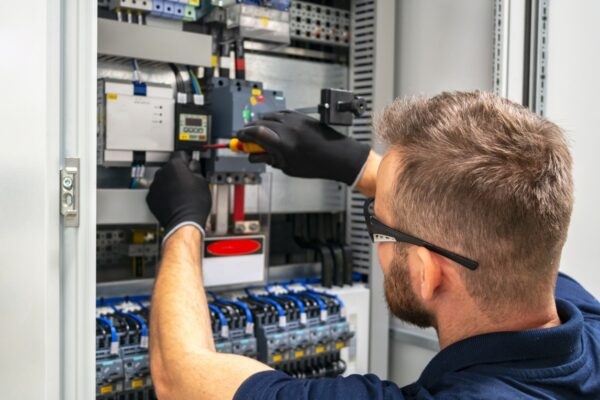What is an Electrical Energy Audit, and Why Does Your Home or Business Need One?
In today’s energy-conscious world, managing electricity efficiently isn’t just about saving money, it’s about sustainability and ensuring a greener future. An electrical energy audit plays a crucial role in this process by helping you identify wasteful practices and offering practical solutions to reduce energy consumption. Whether you’re a homeowner or a business owner, such an audit can be a game-changer for your finances and environmental impact.
For those seeking expert assistance, we at Kaybee Electric specialize in energy management solutions that streamline your energy use while boosting efficiency. But first, let’s dive into why energy audits matter.
What is an Electrical Energy Audit?
Definition of an Electrical Energy Audit
An electrical energy audit is a detailed evaluation of a building’s energy consumption. By analyzing patterns and usage, it identifies opportunities for efficiency improvements and cost reductions.
Goals of an Energy Audit
The primary aim of an energy audit is to reduce energy wastage while optimizing overall energy usage. These audits can result in significant cost savings and better environmental stewardship.
Types of Electrical Energy Audits
Residential Energy Audits
In homes, energy audits often focus on common culprits like inefficient lighting, HVAC systems, or outdated appliances. Fixing these issues can lead to noticeable reductions in energy bills.
Commercial Energy Audits
Businesses often consume energy on a much larger scale. A professional energy audit identifies inefficiencies in operations, allowing companies to save on costs while meeting sustainability goals.
Why Your Home or Business Needs an Energy Audit
Identifying Energy Inefficiencies
Energy audits uncover hidden inefficiencies. For instance, poor insulation might cause heating or cooling systems to overwork, while outdated machinery in businesses can drain electricity unnecessarily.
Financial Benefits
By implementing the audit’s recommendations, you can see a marked reduction in your energy bills. Businesses, especially, can experience a quick return on investment (ROI) by upgrading to energy-efficient solutions.
Environmental Impact
Energy conservation reduces the strain on natural resources. Lower energy consumption equates to a smaller carbon footprint, contributing positively to global sustainability efforts.
Regulatory Compliance
For businesses, an energy audit ensures adherence to local and international energy standards. Compliance can prevent penalties and improve market reputation.
Steps Involved in an Electrical Energy Audit
Initial Assessment – The process begins with data collection to understand energy usage patterns. This step helps auditors know where to focus their efforts.
Inspection and Analysis – Auditors inspect everything from HVAC systems to lighting and appliances. Tools like thermal cameras may be used to detect energy leaks.
Report and Recommendations – The final step involves a comprehensive report outlining the findings and actionable recommendations tailored to the building’s needs.
Common Energy Conservation Tips
For Homes
Swap traditional light bulbs for LEDs.
Invest in programmable thermostats for optimal heating and cooling.
For Businesses
Use energy-efficient equipment.
Train employees on best practices for conserving energy at work.
Tools and Technologies Used in Energy Audits
Smart Meters and Sensors: These provide real-time data on energy consumption, helping pinpoint inefficiencies.
Infrared Scanning for Heat Loss: This technology identifies areas where insulation might be lacking, reducing heating and cooling costs.
Energy Management Software: Advanced tools help businesses track and optimize energy usage more effectively.
DIY vs. Professional Electrical Energy Audits
Pros and Cons of DIY Audits
DIY electrical energy audits can be an attractive choice for homeowners or small business owners looking to save money. By performing a basic inspection, such as checking for obvious inefficiencies, outdated appliances, or improper insulation, you can quickly identify some common issues. Additionally, there are several online tools and resources available to guide you through the process, making it accessible to those with minimal technical expertise.
However, DIY audits have notable limitations. Without specialized equipment or training, it’s difficult to detect hidden inefficiencies, such as power surges, phantom loads, or underlying wiring issues. The lack of comprehensive analysis can lead to missed opportunities for cost savings. Furthermore, without a professional understanding of energy systems, DIY recommendations may not always align with safety standards or best practices.
In summary, while DIY audits are budget-friendly and useful for addressing basic concerns, they fall short in uncovering deeper or more complex inefficiencies that require professional insight.
When to Opt for Professional Help
Opt for professional electrical energy audits when your energy consumption patterns are complex or you suspect significant inefficiencies. Certified energy auditors use advanced diagnostic tools like infrared thermography, power analyzers, and load monitoring systems to pinpoint inefficiencies accurately.
Professional audits are particularly valuable for:
Large-scale issues: If your energy bills are unexpectedly high or your building experiences frequent electrical malfunctions, a professional can assess the root cause.
Commercial or industrial setups: Businesses with heavy machinery, complex electrical systems, or regulatory compliance requirements benefit greatly from expert evaluation.
Safety concerns: Professionals can identify risks such as overloaded circuits, outdated wiring, or improper grounding that could lead to safety hazards.
Upgrades and renovations: If you’re planning to invest in energy-efficient upgrades, a professional audit ensures you focus on the most impactful changes.
While DIY methods work for preliminary assessments, a professional’s expertise is indispensable for comprehensive diagnostics, safety, and long-term savings.
Conclusion
An electrical energy audit is a must-have for anyone looking to reduce energy costs and contribute to a greener planet. Whether you own a cozy home or manage a sprawling business, these audits offer insights that lead to tangible benefits.
FAQs
What is the cost of an electrical energy audit?
Costs vary depending on the size and complexity of the property, ranging from $100 for homes to several thousand for large businesses.
How often should I conduct an energy audit for my home?
It’s recommended every 3–5 years or whenever you notice spikes in energy bills.
Can an energy audit improve appliance lifespan?
Yes, optimizing usage patterns and replacing inefficient systems can extend the life of your appliances.
Are energy audits mandatory for businesses?
In some regions, regular audits are required for regulatory compliance.
How long does an energy audit take?
Depending on the property size, it can take a few hours to several days.


